Our TCBC Spotlight interview with Alexander Papageorge and Ben Papageorge:
Angharad Hatt: Can you tell me a bit about you, who you are?
Alexander Papageorge: I’m Alex and this is Ben. I’m the youngest of three brothers, so there are three of us, Leo, Alex, and Ben. My parents started 30 years ago. To be exact, since ‘92 so 29 years ago. Obviously, we are their children taking over the family business. All of us are involved, running it and just keeping it forward.
Ben Papageorge: Yeah, we’ve been involved our whole lives too so it hasn’t really been a recent thing, but now, a little more. Leo is the oldest, he was born in ’88 and then I’m the middle, I was born in 1993 and then he (Alexander) was born in 1995 as the youngest. We’re still trying to carry on our parents’ legacies and just try to create our own as well doing that.
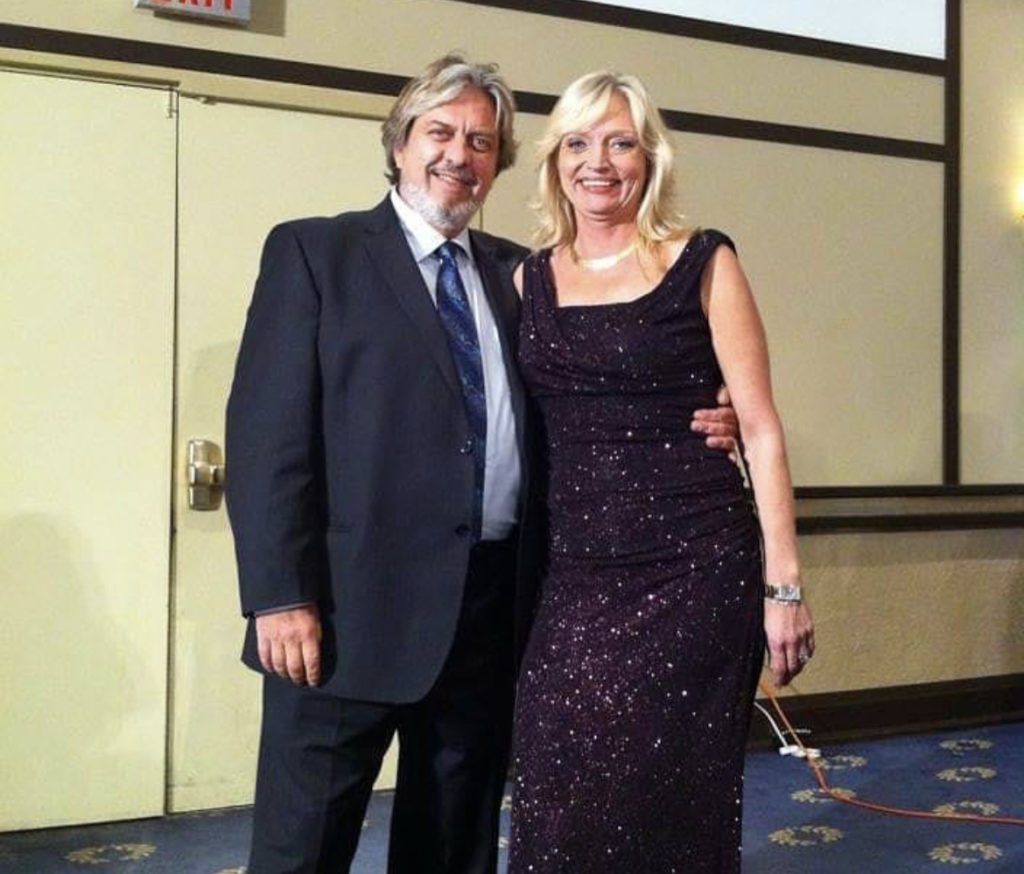
Angharad: So what made your parents want to get involved with the Tim Horton’s franchise to begin with?
Ben: That’s a good question. My dad’s dad, and my mom’s parents as well, so our grandparents even on both sides were entrepreneurs, and specifically my dad’s dad was an owner of a restaurant. He owned one of the first Mediterranean restaurants in Toronto, it’s called the Constantinople and it was at Queen and Parliament. So, I guess growing up in that, he lost his father at a young age unfortunately, he was 17, and I think ever since that, just growing up, he always had the idea of being a restaurant owner and running a business. He also liked to create jobs too, and he didn’t come from a wealthy family he came from poverty pretty much, so I think he wanted to help other people, create jobs, and use his platform to help people that were underprivileged. So my dad and my mom met. Similar story with her, her parents ran businesses like a flower shop and a convivence store downtown and a grocery store eventually, and they kind of had a like-mind like that of going into the restaurant industry.
Alex: He kind of saw, like, how he got into it, we can even get a little bit more in-depth, he was working at a car dealership and there’s a Tim Horton’s across the street. The Tim Horton’s closed down because there were some issues, but my dad saw the opportunity and bought the location. Scrounged a lot of money, took out some loans, and ended up getting that location. Ran his own little coffee shop that was already kind of there. Then he called up Tim Horton’s up and was like “Hey, do you want your location back?” kind of deal and they made a deal, and that’s how he got Tim Horton’s started. So he kind of got into it that way, rather than seeing the brand and jumping in but it was a good opportunity, and this is when Tim Horton’s wasn’t even that big so he kind of just took a gamble with the brand and he got it and never looked back. He one location for a while, and then he got to and then it slowly got up, we have eight now, but we had ten at one point.
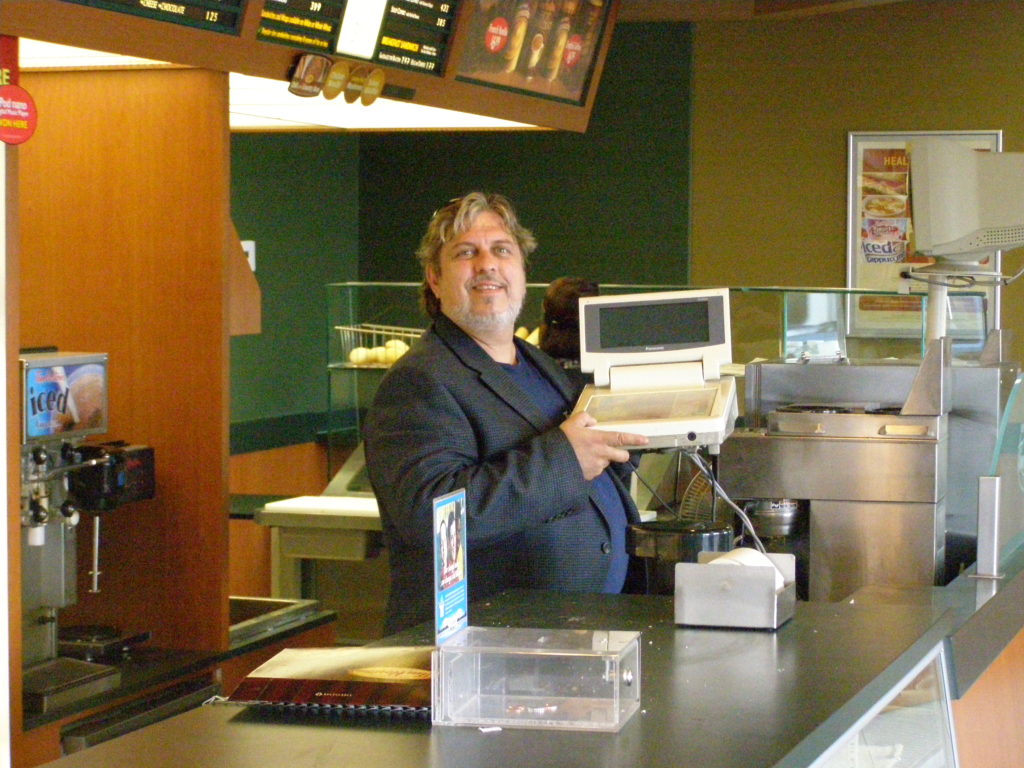
Angharad: So growing up, did you think that you would continue that legacy, or was there a moment that you thought “I want to do this myself.”
Ben: Honestly, I think we all have kind of different stories on that, but in general, it’s being brought up in that business, it’s your whole life. My dad had to go in and bake donuts or my mom would have to do the books. We would be sitting there as babies sitting on the freezer. I was always involved, so it’s kind of engraved on you no matter what. That’s kind of the short answer to it. It’s something that we’ve all been brought up in and we enjoy it too, even the charity work that’s really the best part, being able to give back because we were brought up like that.
Alexander: Yeah, like we were involved with, especially The Children’s Breakfast Club from a very young age, and that was a big thing and that’s how we kind of got started working in the stores, is doing a lot of charity and being involved with The Breakfast Club and things like that. So that, I don’t really remember, I just always wanted to be involved in the business, ever since I was a baby, so I couldn’t even tell you when I started to think about it. But obviously, when you get older you start wanting more realistic goals and stuff and it was a great opportunity that my parents had and I can’t really argue against it. So why not join it and try to grow it further, right? I can say that’s me and Ben, and my older brother has well even though he’s a little bit more branched off in construction but he used that platform to grow into that so it’s been a great, great thing for that. Yeah, there’s no specific day or story, but just since I was born, I was kind of born into it.
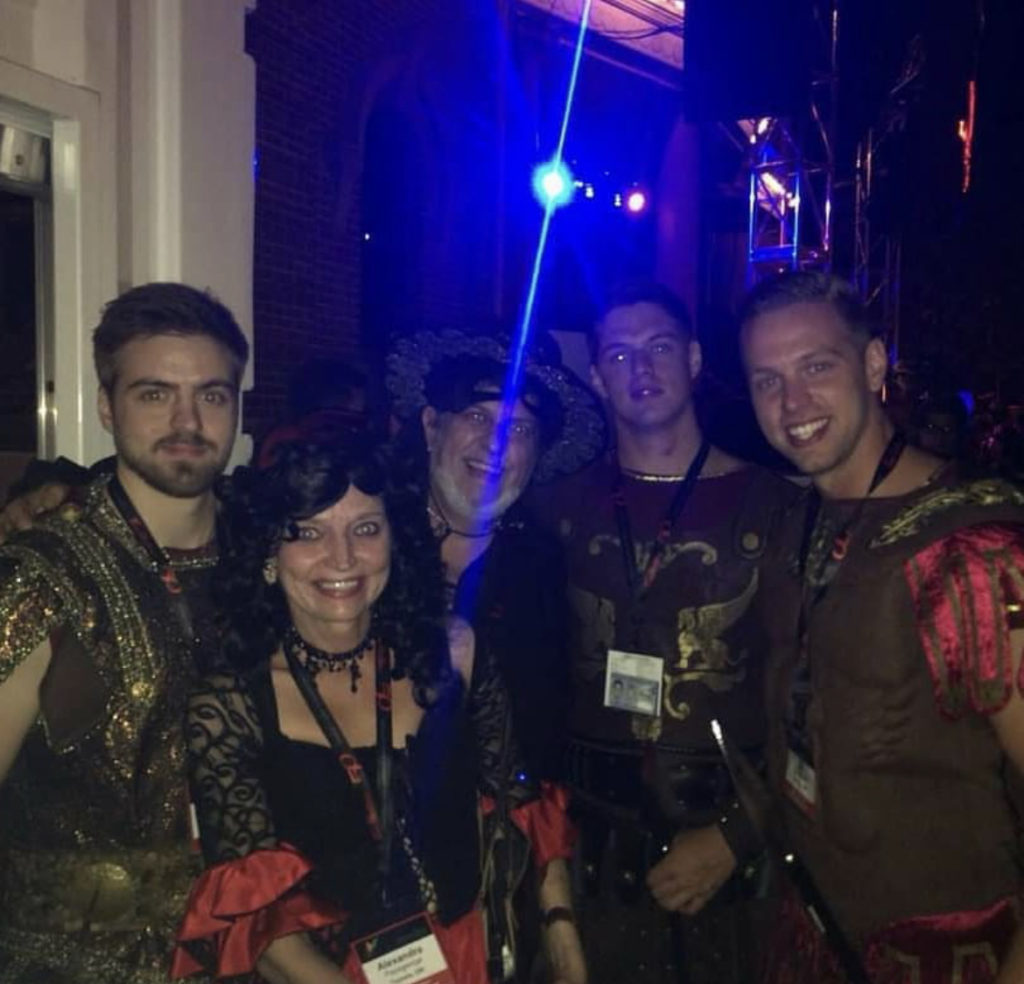
Angharad: What role have you played in your local community, whether it be supporting local events, sponsoring hockey teams, what role have you played?
Ben: There are all the campaigns, like the smile cookie campaign with Rick and everybody, donating back to The Children’s Breakfast Club, so we do a lot with Rick. Then guys like the 32 division police officers. Last year we got a community award from them just because anytime we’re able we’ll donate coffee, anything they need, we’re pretty much on call for them. There are our local middle schools. They do the skates just during the winter, obviously when that was happening, maybe not the last year or two. But that, if they need hot chocolate, we’ll donate hot chocolate. We try to keep it really community-driven. When COVID first started, we donated a bunch of coffee and donuts to frontline workers. We partnered with Jamaal Magloire and we wanted to keep that local. But we went to Scarborough and the Scarborough health network and we did all the donations there. Even Christmas, my dad used to do this and we’re carrying it on a little bit. Obviously, we wanted to start carrying it on now but with COVID, it was a little difficult.
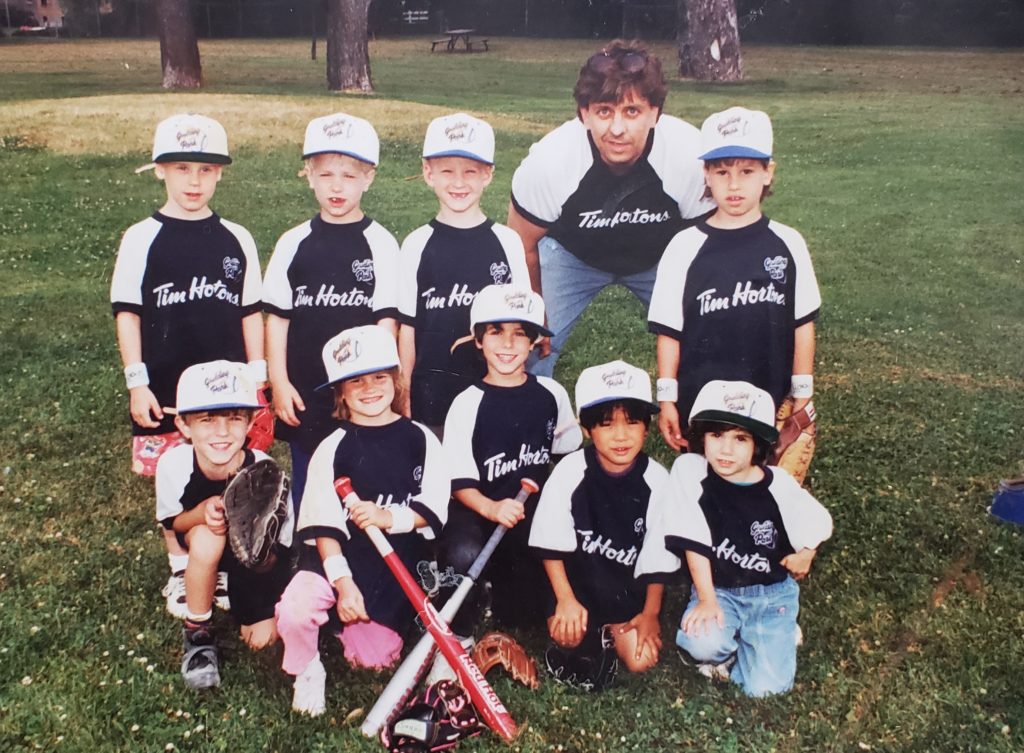
Alexander: Well, we carried it on before and Rick will help us out, but we donate a lot of products during Christmas and stuff. So my dad asked me to go when we were kids and brought all extra donuts and stuff because it used to be more bakes, like full bakes, so there’d be extra donuts. My dad would do a full bake and then we’d donate all the rest to homeless shelters around town, things like that. Now it’s kind of we bake a bunch and then Rick will pick it up and bring them down to the youth jail and stuff during Christmas. The last couple of years it hasn’t really happened too much, I don’t know if we did it two years ago, this is because of COVID and not being able to enter the jail. So, there’s that and that’s kind of our basis. My parents, my dad, and mom, would sponsor people to bring them over and we, I know I was talking to Rick about this and he wanted me to mention it, this is how my dad and Rick met. So, my dad sponsored a guy from St. Lucia, brought him up to work in the story and he was living with us in our own home for a while. When Rick just met this guy working at the store and he’s like “how did you end up here, you’re from St. Lucia?” So, he told him the whole story, and Rick’s like “I got to meet the owner of the store so then my dad and Rick connected that way. That’s how we first got involved with the Breakfast Club because my dad met this guy in St. Lucia one day, wanted to come to Canada, my dad put in all the work, got him sponsored, got him a job and he was living with us. That’s stuff that my parents would do and just go way above and beyond where people wouldn’t even imagine they would go just to help one person. Just things like that, and obviously, as kids, it’s contagious, right? So, you see your parents doing that stuff and we just try to build on that and kind of create that legacy through that.
Angharad: And what’s the most rewarding thing for you in doing these outreach events? Whether it be, you know, giving food and drinks to frontline workers. What does that look like for you?
Ben: I know that I’ve been blessed with a great life because of what was set up for me, so being able to give a sliver of that back to people that have really, really earned it, like the frontline workers that are going through hell and back. Even if it’s just something small like a smile on their face, I can make a bit of a difference so it feels good to me. As long as I know I’m kind of helping them go through their tough time, if I can help a little bit, if I can help a lot, either way, no help is too little.
Alexander: It’s just been so wired in our thing it’s just, it’s something you should do and it makes us happy, it makes everybody happy, and it’s part of life. If you’re not helping and going above and beyond, you’re not living a fulfilled life. It’s definitely good to add that aspect. We’ve been doing it for so long it’s just part of who we are.
Angharad: So you talked a bit about community outreach and you know, bringing that joy and optimism to people in your Community. So when it comes to your locations and your franchise, you said you have eight right now, how do you create such an energetic and optimistic and supportive team at those locations? Especially when COVID hit, it probably, I can imagine, hurt employees everywhere. So even during those times, even now as we’re slowly starting to get back to normal, how have you worked to create an energic and optimistic environment during these times?
Alexander: Good question, we’ve been just trying to keep spirits high with everything but it’s a lot of listening. Our team members do so much for us and I can’t even thank them enough. Like their jobs is one of the toughest jobs. So just taking the time for listening, seeing what they need. We are, it sounds so cliché, but we are a family. We all have the same goals and we do have the same drive, so being able to communicate, so having that is very important. It’s been tough, especially with our team members and stuff but the goal is always exactly what brings it back. Everyone has their own life but everyone is still a family in our team, so it’s not looking at anyone in a different way. We all have the same goals. It’s that teamwork environment.
Ben: I think you hit it on the head.
Alexander: A lot of our staff, I’ve grown up with them, we’ve grown up together. We’re all human beings and experiencing the same problems and going through it. As long as we all know that, we’re all going through that same struggle with COVID. They’ll reach out and have a little bit more happiness and effort to help me out, you know, have a bit more happiness and effort to help them out. So, it’s just staying really close, having that communication, and really getting through these tough times. It’s just listening and being open, that’s why I think we have really low turnover with everybody because we’re, especially my dad, it’s about creating jobs. My dad’s biggest accomplishment wasn’t “Oh look I made this much money, and look, I have 10 stores.” It’s “I created 100 jobs” or “I created 120 jobs”. That was 120 people that need us to have food on the table and I want to be there to help them do that. So, it’s having that kind of outlook rather than being like “how do we cut profits?”. It’s about doing more and running the business that way, rather than others. So, I think our team members do realize that’s kind of what we do and we have those open conversations with them. So, I think that’s how we stuck together and have those high morals at our location. Obviously, you’re going to have some people that are a little down and you got to work through it but it’s about having that communication with everyone.
Ben: We just try to keep an open line of communication with everybody as much as we can, so they know that if there’s a problem they can reach us, they don’t have to be afraid or intimidated and that’s the goal with everybody.
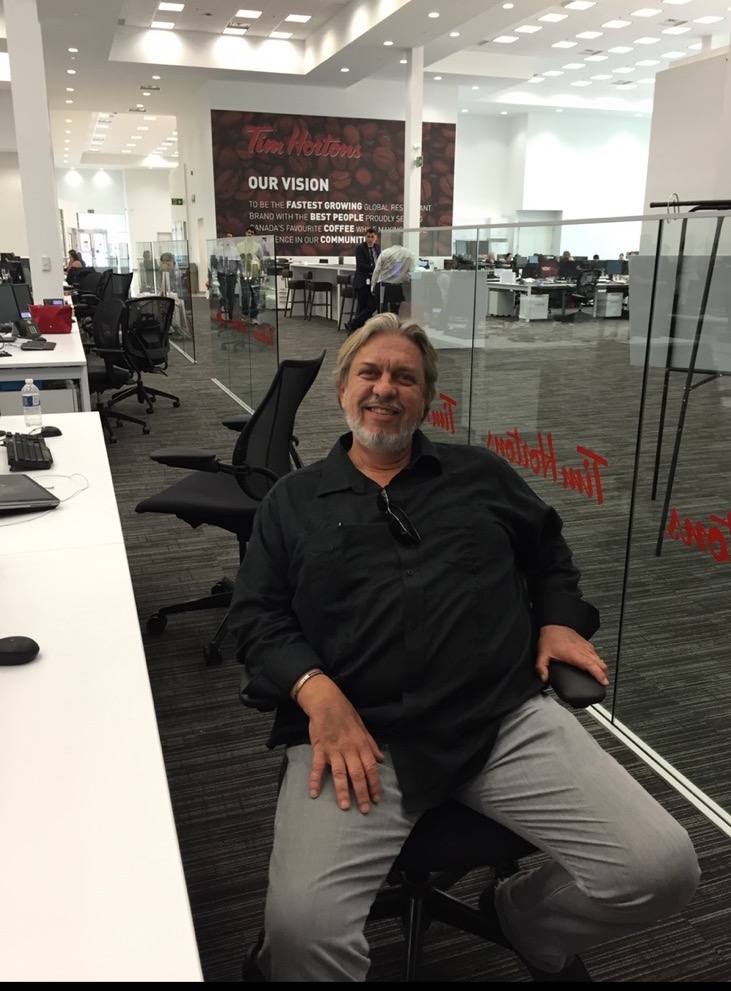
Angharad Hatt: Are you a part of a local BIA and, if so, which one are you part of?
Alexander: We are, it just got created a couple of months ago. It’s BIA Willowdale that we’re a part of. I haven’t done any work with them really yet, because it’s so new. The thing with Tim Horton’s is that we do a lot of our own marketing and stuff like that, so I don’t really use their services. I don’t even know if I’m allowed to ask for help when it comes to being a franchisee because I can do some sort of marketing on my own, but you can’t do that much. I want to start being more involved with the BIA but it just got created so I don’t really know much about it.
Angharad: And you mentioned it a little bit in the beginning, as to how your father met Rick and got kind of got involved with The Children’s Breakfast Club. All these many years later, why do you continue to support The Children’s Breakfast Club?
Alexander: It’s just how good the people are at The Breakfast Club. Rick and Zubeda are just so genuine, and the cause they do. I don’t want to hate on any other charities, I love to support other charities, but you know what you’re doing is greatly appreciated and goes to the right cause. So, when you go to The Liberty Grand and you see that big spectacle, you can see the smiles on the kids’ faces right away. We’ve delivered toys to the schools directly and the kids are just having so much fun and it makes their day a little bit better. With the struggles they’re going through, you can really see the action and the results are just so quick and rewarding. It’s right there. The people behind it like Rick and Zubeda, they’ll answer the phone right any time. If I have a problem, I can call Rick up directly and he’ll answer and we can have a conversation. If I just want to have coffee and I have no issues going on, he’ll take the time. But if I want to call another charity, I’m on hold so it’s not the same. That family mentality I like, and that’s how we have it at our restaurants and that’s how we were raised so it’s that same, we’re cut from the same cloth. So that’s why we love him so much and the cause is great. When it comes to how important is breakfast and having those schools and the education system, everything they’re doing is amazing. The coat drive and things like that. It’s a lot different than dealing with these big charities that don’t do that, it’s that perfect middle ground where it’s big enough where it’s making a huge impact but they’ll take the time and really listen to you and we can work together and if they need my help, it’s there. That’s why it’s so successful, I think. Everybody wants it the same.
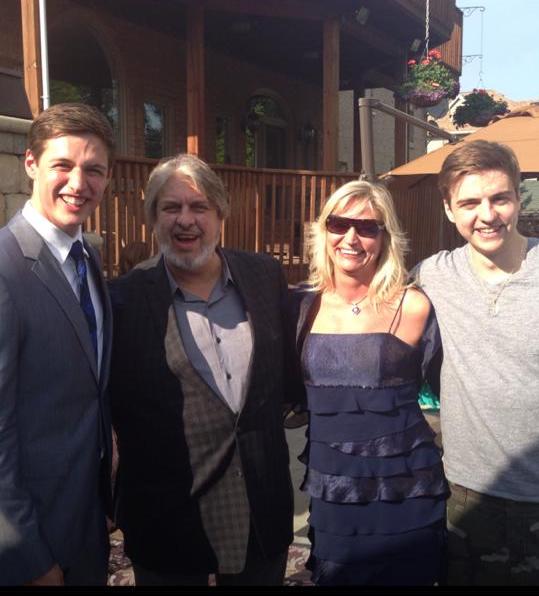

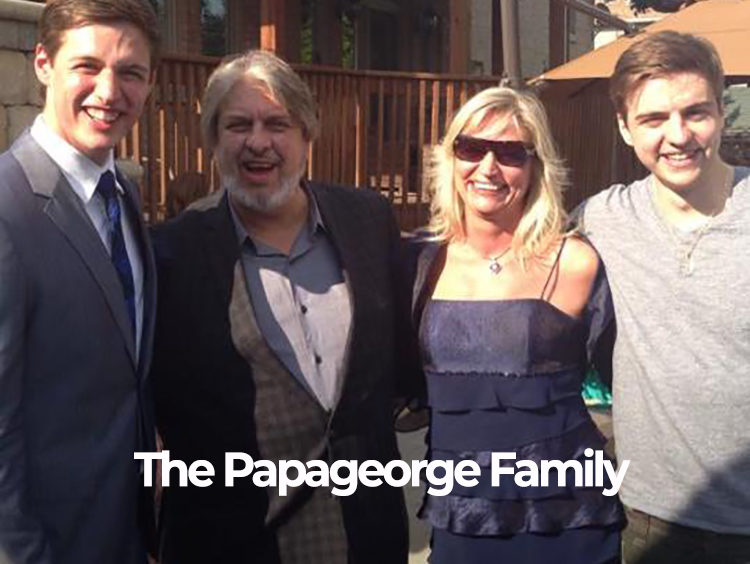
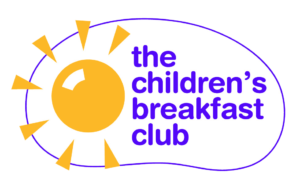
Comments are closed.